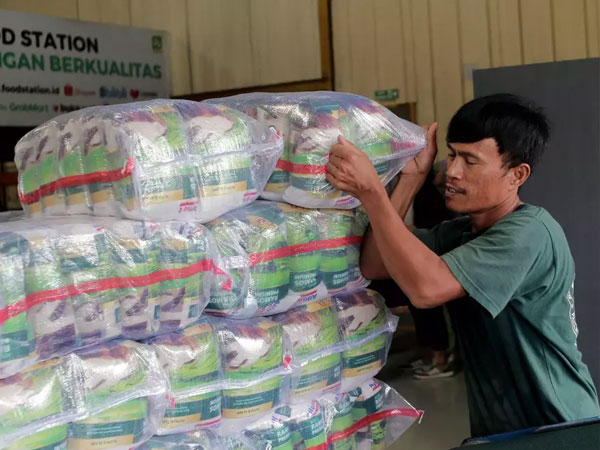 Jakarta Governor Pramono Anung said Monday he is considering a recall of rice products distributed by city-owned company Food Station Tjipinang Jaya, following a criminal investigation into alleged product mislabeling and price manipulation.
Jakarta Governor Pramono Anung said Monday he is considering a recall of rice products distributed by city-owned company Food Station Tjipinang Jaya, following a criminal investigation into alleged product mislabeling and price manipulation.
His remarks came after police named Food Station CEO Karyawan Gunarso and two company officials as suspects. Authorities allege the company sold standard-grade rice as premium varieties at inflated prices, and that packaging labels overstated the net weight of the products.
“The Jakarta government fully supports law enforcement and will respect the outcome of the investigation,” said Pramono, who took office on February 21. “If a recall is recommended, I will comply. But much of the rice in circulation has already been consumed.”
In response to the probe, Pramono has appointed the company’s finance director, Julius Sutjiadi, as acting CEO.
The two other suspects in the case are Operational Director Ronny Lisapaly and a quality control staff member identified by the initials RP. All three face charges under Indonesia’s 1999 Consumer Protection Law and the 2010 Anti-Money Laundering Law, which carry penalties of up to 20 years in prison and fines of up to Rp 10 billion ($615,000).
Brigadier General Helfi Assegaf, who leads the National Police’s Food Task Force, said investigators are preparing to seize rice processing equipment from the Food Station facility. Authorities will also consult expert witnesses to assess potential corporate liability and are coordinating with the Financial Transaction Reports and Analysis Center (PPATK) to examine financial records.
“The National Police will take firm action against any business entity that deceives consumers,” Helfi said. “We urge the public to check that rice packaging meets Indonesian National Standards (SNI), is clearly categorized, and correctly labeled with the actual net weight.”
In collaboration with the Agriculture Ministry, the task force has collected samples from at least 25 rice brands. Preliminary findings indicate that several products marketed as “premium” were of standard quality, with some packages found to contain less rice than stated and prices exceeding government-imposed ceilings.














© Copyright 2025 The SSResource Media.
All rights reserved.